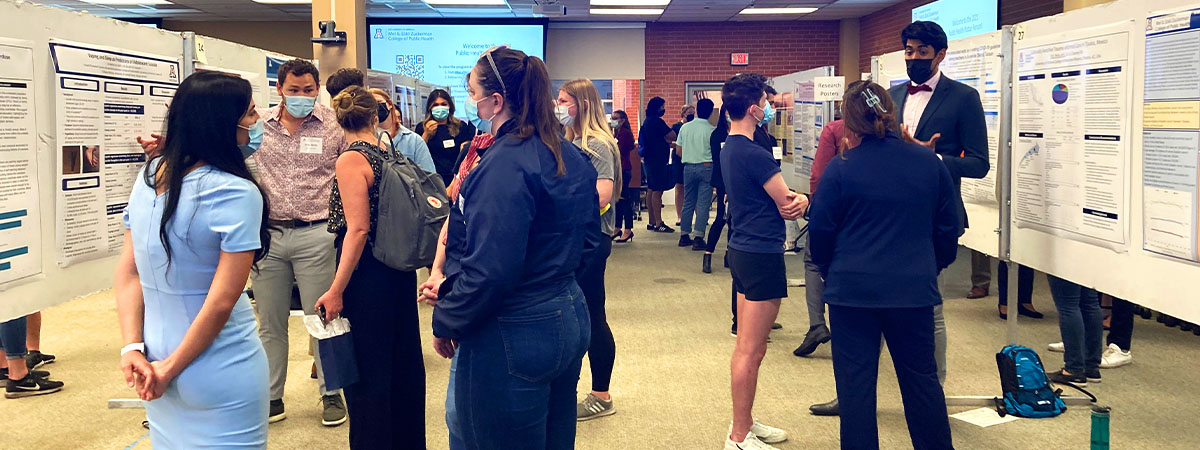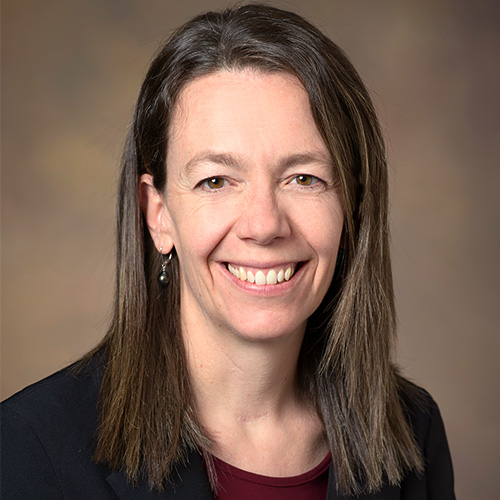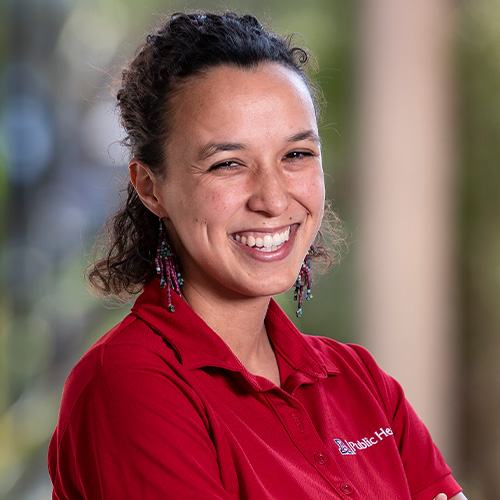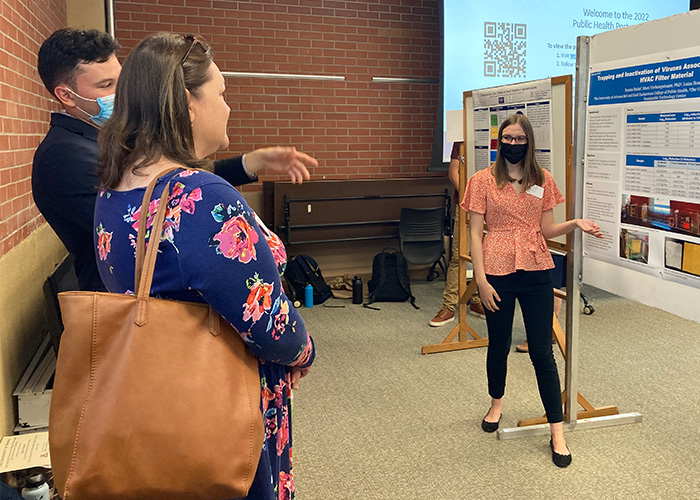Resilience: How Do We Stay Motivated Through a Long Pandemic?

This year Building Resilience was the theme for the annual Public Health Poster Forum where students present their research and projects.
–Story by Erin Green
The COVID-19 pandemic made public health visible to the whole world. Now everyone appreciates the importance of prevention, mitigation, and treatment interventions. Over the past two years, the pandemic has tested the strength and resilience of many communities. In particular, it has been a long and exhausting struggle for healthcare workers and public health professionals, and often took a toll on mental health.
Here at the Zuckerman College of Public Health we asked some of our faculty and graduate students how they found a way to maintain hope and stay resilient during month-after-month of COVID response.

Patricia Haynes, PhD, CBSM
Patricia Haynes, PhD, CBSM, an Associate Professor in Health Promotion Sciences and a licensed clinical psychologist, specializes in sleep psychology, depression and anxiety, and intervention research. In addition to teaching classes and mentoring students, she conducts research on stress, sleep and mental health.
Dr. Haynes also provides direct psychological services to emergency response workers and consults on organizational mental health programs. In her work, she has seen the disinformation and mistrust that have become widespread in American society, and the polarization of our politics, that have emerged as a significant challenges for public health professionals. To avoid feeling discouraged, she focuses on the process of conducting her work rather than the direct impact. She strives to accept situations for what they are, and seeks the benefits of talking to supportive colleagues.
“Most people use the term balance, but I actually try to practice alignment,” says Dr. Haynes, “I try hard to align my behavior with my personal priorities and values. Whenever I get into an overwork pattern, I try to refocus on what’s most important to me by asking myself ‘In 20 years, will I remember that I worked late to make this deadline? Or, will I remember the time spent with my kids?’ When I frame it that way, I can detach easier from work and feel good about the time I spend with my family.”

Maiya Block, MPH
Maiya Block, MPH, is a doctoral student at MEZCOPH, and leader in the Alliance for Vaccine Literacy. She spearheaded a series of virtual workshops to help people navigate challenging conversations surrounding vaccine hesitancy, giving participants the opportunity to learn communication techniques and practice them in role-playing scenarios. From her experience and discussions with colleagues, she knows the danger of burnout from juggling changing public health guidelines and managing disinformation, both major issues in the public health arena.
“We are all realizing that trust is vital for us to move forward effectively and move past this pandemic and really feel free,” says Block, “There are historical reasons why there is mistrust of public health institutions and research, but ultimately creating opportunities for human-to-human interactions that build trust is essential.” She recognizes that there are many opportunities to find common values that help cultivate trust in communities, and that building trust is essential to systemic change.
To stay resilient, Maiya seeks to balance her work with a happy and healthy home and family life. Her strategy for maintaining wellness includes eating a balanced diet and daily physical activity. She also notes the importance of financial health.
“I try my best to save a certain percentage of the money I earn as soon as I get each paycheck,” she says, “because when my wallet is not happy it can really affect my mental wellbeing.” To prevent burnout, she is careful to make time for family, continue to set boundaries, and aims to get better at saying ‘no.’
Advice to Students
We asked Patricia Haynes and Maiya Block to share their advice to students and graduates entering the public health profession.
Dr. Haynes’ message to students:
“You are entering a highly fulfilling and admirable profession. However, your job is not just to survey infectious disease, evaluate health risk, promote health, address health disparities, or develop policy – your job is to build bridges. In order to be effective, you need to understand why people might disagree with public health recommendations and find a way to move forward together. I think this pandemic has shown us that few other activities can be fully successful without this type of diplomacy.”
Maiya Block’s advice to students:
“Take on as many experiences as you can – join clubs, help to lead different symposiums, and interact with professors and staff as much as possible to network, but also to learn from them… for me, I learned the most from the experiences I had outside of the classroom applying the skills I had learned in class.”
The Public Health Poster Forum 2022: Building Resilience

Many students within MEZCOPH responded to the call for the 2022 Annual Public Health Poster Forum (PHPF). The theme for this year’s Poster Forum, Building Resilience, motivated MEZCOPH students as well as the larger University of Arizona community to present creative and innovative solutions to public health issues.
Keynote speaker presentations on the topic of Resilience at the PHPF included Greg Collins, PhD, MPH, who gave a presentation titled The Rise of Resilience in International Development, William Simmons, PhD, MA, gave a presentation titled Resilience and Posttraumatic Growth among Rohingya Refugees in Bangladesh, and Nicole P. Yuan, PhD, MPH, gave a presentation titled Uncovering Resilience in Narratives from Young People Living in Southern Appalachian Communities.
This year’s pre-event activity highlighted a podcast hosted by MEZCOPH alumna Maria Guadalupe Valdez, MPH, called What’s Up Public Health. The podcast episode recorded for the Poster Forum, titled Building Resilience During COVID and Now, included a roundtable discussion among the Poster Forum judges, Dr. Mona Arora, PhD, MSPH, Dr. Conrad Clemens, MD, MPH, Zaida Dedolph, MPH, and Dr. Laura Gronewold, PhD. Listen to the episode here!
In conclusion, we thank all the public health and healthcare professionals in our community for the work they have done over the past two years despite all the challenges! And we thank our students, staff, and faculty for continuing to promote public health and for their resilience in the face of adversity!

